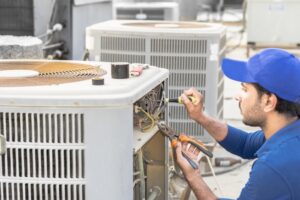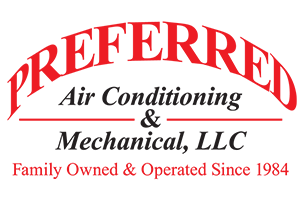Understanding the Basics of Geothermal Heat Pumps
Geothermal heat pumps offer an innovative way to heat and cool your home. Understanding how geothermal heat pumps work will help you to appreciate the benefits of this type of heating and cooling system for your Palm Beach, Florida, home.
Parts and Installation
There are many different types of geothermal heat pumps, but all consist of a series of pipes buried in the ground. These may run vertically or horizontally depending on the available space and the requirements of the particular system that is being installed. The most important factor is that these pipes use milder underground temperatures as the fuel to power your air conditioning system.
Though temperatures vary widely above ground, they stay fairly consistent beneath the soil once you reach a depth of about 10 feet. Shallow ground temperatures are similar whether you’re in the northern or southern regions.
How It Works
Like other types of heat pumps, geothermal heat pumps don’t generate heat. Rather, they move the existing heat, drawing it in or sending it out of the home. The geothermal heat pump circulates a liquid through the buried pipes. This fluid exchanges heat with the earth to create a heating or cooling effect in the home. In winter, the fluid will absorb heat from the ground and carry it to the indoor unit. In summer, the system extracts heat from the air inside your home and transports it via the fluid into the cooler earth below, dispersing it underground to keep the home cool inside.
Energy Efficiency
Geothermal heat pumps are far more efficient than other heating and cooling systems because the temperature variation between indoor and outdoor air is less than with traditional units. In addition to lower utility bills each month, most units last up to 25 years after installation, compared to 15 years for conventional units. Geothermal units also require less maintenance than traditional heat pumps.
If you are considering a geothermal heat pump for your home, contact Preferred Air Conditioning for more information. You can reach us by calling (561) 202-1422 (Palm Beach) or (772) 905-3358 (Port St. Lucie) to discuss your options.
Image provided by Shutterstock
You May Also Like

Boost Your Boca Raton, FL, Business With Commercial AC Repair
Florida’s subtropical climate doesn’t take a February vacation. While temperatures hover in the comfortable mid-70s, your commercial AC system works overtime maintaining… Continue Reading Boost Your Boca Raton, FL, Business With Commercial AC Repair…

Beat the Chill With a Lower Heating Bill in Vero Beach, FL
While our Florida chill might not compare to northern freezes, the recent cold fronts have homeowners reaching for their thermostats with increasing… Continue Reading Beat the Chill With a Lower Heating Bill in Vero Beach, FL…

Yes, You Must Schedule Heating Maintenance in Fort Pierce, FL
The salty ocean breeze that makes Fort Pierce, FL, living so appealing carries an invisible threat to your heating system. December’s mild… Continue Reading Yes, You Must Schedule Heating Maintenance in Fort Pierce, FL…
